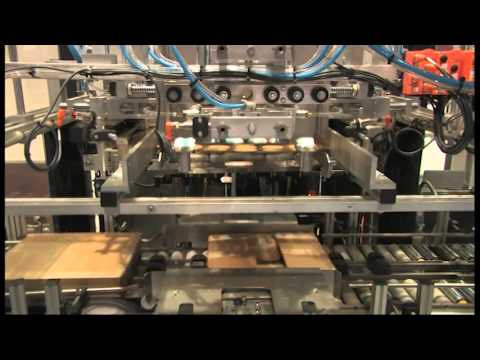Title: Streamline Your Packaging Process with the I-Pack Automated Packing System
Description:
Welcome to our video showcasing the revolutionary I-Pack Automated Packaging System (Full version). Designed to optimize your packaging process, the I-Pack® offers a seamless solution for businesses looking to improve efficiency and productivity.
In this video, we provide a comprehensive overview of the I-Pack Automated Packing System, highlighting its key features and benefits. Whether you’re a small business or a large-scale operation, the I-Pack® can transform your packaging process, saving you time, resources, and costs.
Key Takeaways:
– Increase packaging speed and accuracy with the automated functionality of the I-Pack®
– Minimize packaging material usage and waste through optimized packaging design
– Enhance product protection and reduce the risk of damage during transit
– Improve ergonomics and workplace safety for your packaging team
– Simplify the packaging process with user-friendly controls and intuitive operation steps
Our video dives deep into the functioning and operation of the I-Pack®. Discover how this automated system streamlines your packaging workflow, from product placement to sealing and labeling. With its advanced technology and intelligent features, the I-Pack® ensures consistent and high-quality packaging results every time.
Experience the future of packaging with the I-Pack Automated Packing System. Don’t forget to like, subscribe, and share this video to stay updated with the latest advancements in packaging technology.
Additional Tags and Keywords: automated packing system, packaging automation, packaging efficiency, packaging technology, I-Pack, packaging process, packaging solutions, product packaging, streamline packaging, automated packaging equipment
Hashtags: #AutomatedPacking #PackagingAutomation #IpackSystem #StreamlinePackaging
import cv2
import numpy as np
def tilt_image(image, angle):
# Load image
img = cv2.imread(image)
# Get image dimensions
height, width = img.shape[:2]
# Calculate the rotation matrix
rotation_matrix = cv2.getRotationMatrix2D((width/2, height/2), angle, 1)
# Apply the rotation matrix to the image
rotated_img = cv2.warpAffine(img, rotation_matrix, (width, height))
# Save the tilted image
cv2.imwrite(“tilted_image.jpg”, rotated_img)
# Display the tilted image
cv2.imshow(“Tilted Image”, rotated_img)
cv2.waitKey(0)
cv2.destroyAllWindows()
# Specify the path to the image
image_path = “input_image.jpg”
# Specify the tilt angle in degrees
tilt_angle = 30
# Tilt the image
tilt_image(image_path, tilt_angle)Packing System
#IPack #Automated #Packaging #System #Full #version
